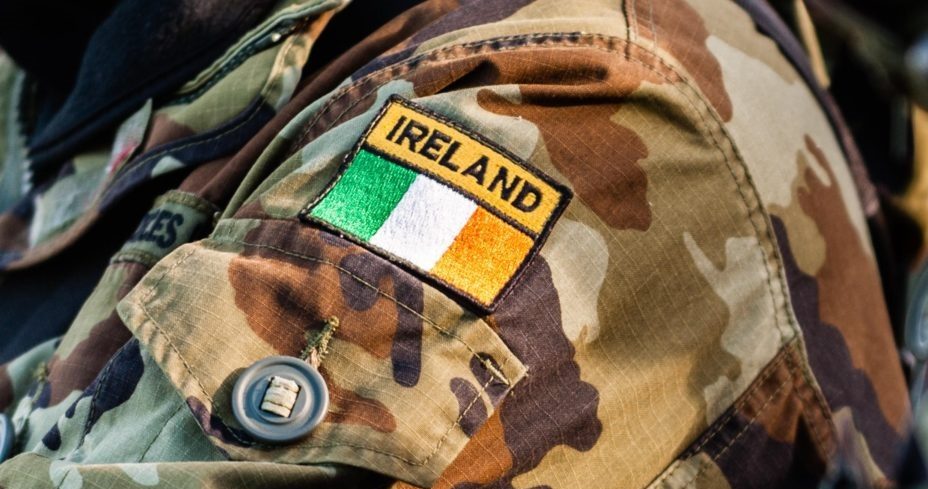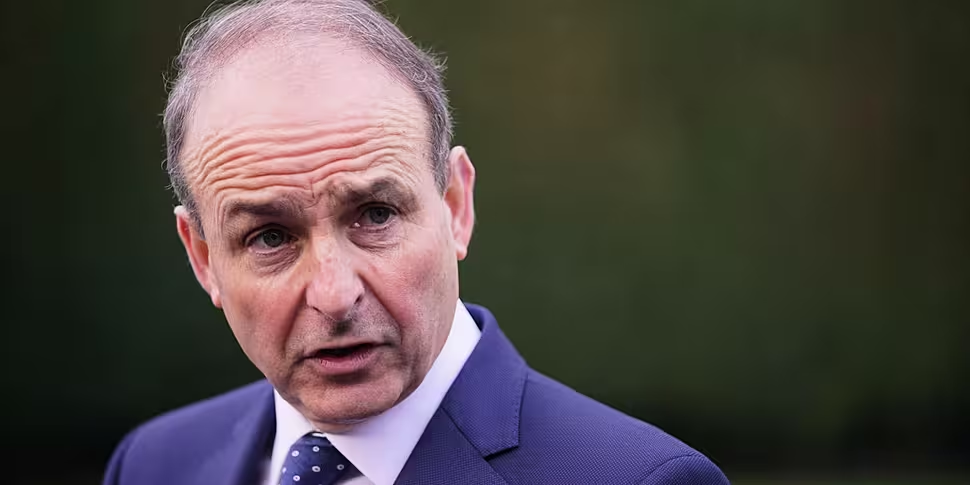"This ‘Triple Lock’ system hands the five permanent members of the Security Council a veto over our national sovereign decision to deploy troops to peacekeeping missions as we see fit," he said.
He said while there was no single consensus from a recent Consultative Forum on International Security Policy Report over how to proceed with the Triple Lock, there is "ample evidence of other options" for agility and responsiveness.
"It would therefore make sense, I believe, to amend our existing legislation in a manner which would allow us to respond to crisis situations with more agility, and where in making these important decisions, we are not surrendering our sovereignty," Mr Martin said.
 An Irish Defence Forces arm patch of a soldier in October 2016. Image: Andy Gibson / Alamy
An Irish Defence Forces arm patch of a soldier in October 2016. Image: Andy Gibson / Alamy"I have therefore instructed officials in the Department of Defence to prepare legislative proposals without delay that would govern the future overseas deployments of our Defence Forces.
"These could, for example, allow us to despatch Defence Forces personnel to multilateral missions overseas where these are organised by a regional organisation such as the European Union or African Union, or where the host country is requesting such support from the international community.
"While these proposals may not necessarily always include a role for the UN Security Council, they will of course remain fully consistent with the principles of the UN Charter and international law," he added.
He said any such change would "be removing the veto power of Security Council members over Ireland’s engagement, while safeguarding the essential link with international law and good governance."
Mr Martin has previously said he was in favour of reform of the system.
Independent Senator Gerard Craughwell also noted that the current Triple Lock system also gives the UK a veto over Ireland.
NATO
Mr Martin also took the opportunity to reiterate that the Government has no plans to join NATO.
He said Ireland's policy of military neutrality would not be changing.
"It should not be necessary for me to say it again but for the avoidance of doubt, let me once again be entirely clear: this Government has no intention of taking any steps towards NATO membership or altering our policy of military neutrality. That is simply not on the agenda," he said.
"But I have no hesitation in stating that the Partnership for Peace programme in place since 1999 has offered us valuable opportunities to enhance our defence capabilities.
"Importantly, the focus on interoperability of our Defence Forces has greatly facilitated Ireland's participation in UN and EU missions overseas, including our current engagement in the Irish-Polish battalion in UNIFIL," he added.
The Partnership for Peace (PfP) is a programme of practical bilateral cooperation between individual partner countries and NATO.
It allows partners to build up an individual relationship with NATO, choosing their own priorities for cooperation.









